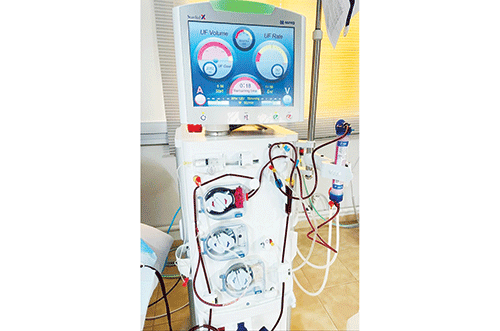Linea Dishena
The Ministry of Health and Social Services has decided to establish dialysis services at the Katutura Intermediate Hospital, Keetmanshoop, Rundu, Oshakati, Otjiwarongo and Walvis Bay.
Speaking at the Government Information Centre on Monday, minister of health Dr Kalumbi Shangula said Namibians have to travel long distances from different parts of the country to access dialysis services, mainly in Windhoek, while some State patients are also referred to private dialysis centres.
This resulted in the government spending N$100 million per year due to the limited number of public dialysis centres across the country.
He added that the government has also approved the introduction of additional Intensive Care Units (ICUs) in all 34 district hospitals around the country, noting that before the Covid-19 pandemic, there were less than 25 ICUs in the public health sector.
“More than 85% of the Namibian population depend on public health and social services provided through hospitals, including 322 clinics, 56 health centres, 34 district hospitals, four intermediate hospitals, and one national referral hospital. There are more than 1 150 outreach points across the country,” he said.
Shangula further noted that dental services are also being expanded. During the 2023/2024 financial year, the ministry has procured 13 operating tables, 20 electrocardiographs, 97 infant incubators, 20 dental chairs and dental x-rays, as well as 18 dental autoclaves.
The ministry, he said, equally commissioned a picture archive and communication system and radiology information system at a cost of N$19.3 million at the five referral hospitals to digitise the storage and transfer of patients’ imaging records.
Shangula also said the ministry installed oxygen-generating systems at different health facilities, including Onandjokwe; Mariental; Swakopmund; Okakarara, and St Mary’s Hospital in Rehoboth, as well as at hospitals in Keetmanshoop; Okahao; Eenhana; Okongo and Andara.
The ministry is working around the clock to address diseases such as HIV/AIDS, malaria, and TB, he said, while calling on all Namibians to cooperate with the public health authorities to combat diseases that may occur in the communities.
-Nampa
(Shangula)


